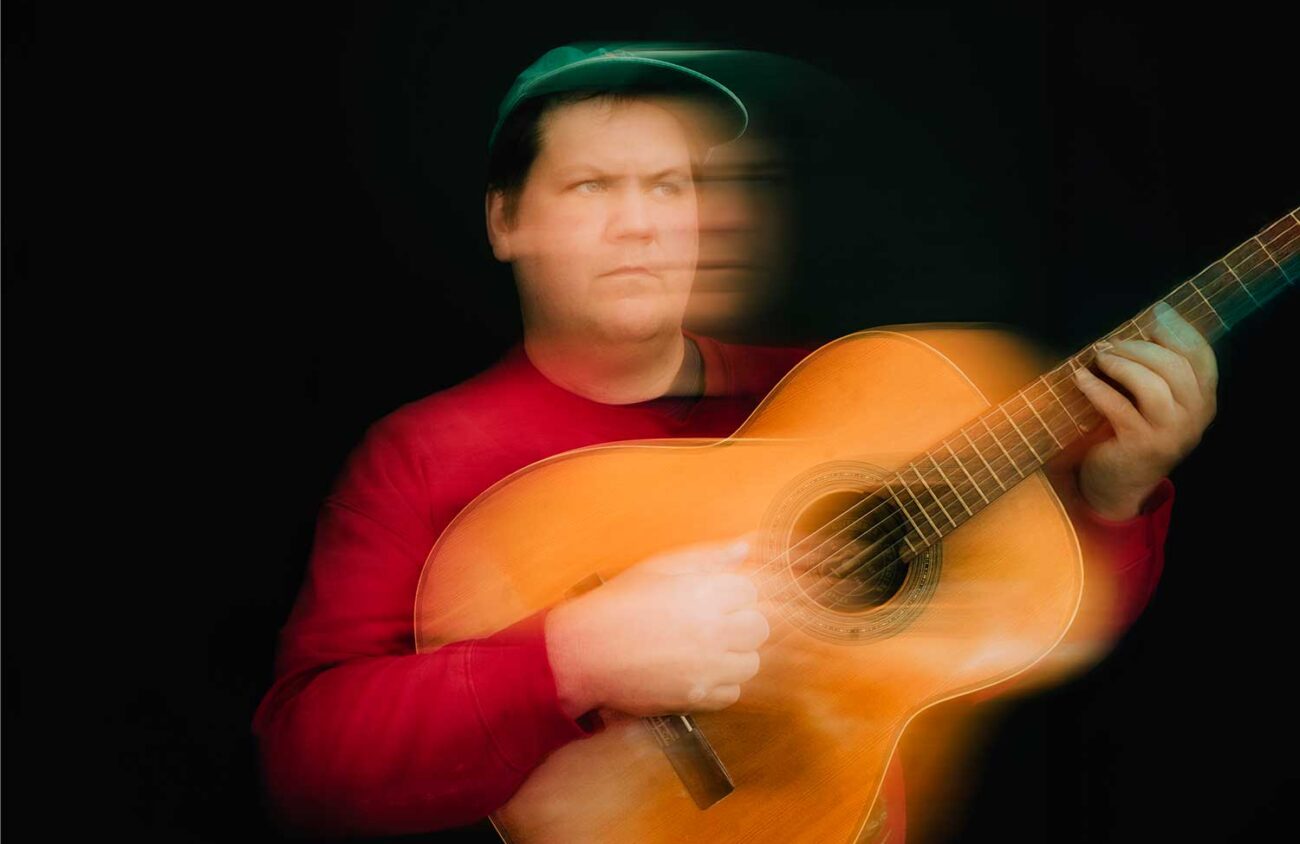Younger generations tend to reject their elders’ music, but when Jake Xerxes Fussell was a teenager — the son of folklorist and photographer Fred C. Fussell and former student of blues legend Precious Bryant, who died in 2013 at the age of 71 — old-timey folk, blues and country music was a form of rebellion.
Fussell, 43, comes to Eugene, supporting last year’s excellent When I’m Called, his fifth full-length album, and first on Fat Possum Records, a showcase for Fussell’s curatorial eye for archaic American acoustic music drawn primarily from the American South and viewed through Fussell’s modern lens.
In addition to his Bryant tutelage, Fussell has appeared on Prairie Home Companion, accompanied Etta Baker and toured with Wilco and The Decemberists.
“I was fortunate to be around people who played traditional music when I was a kid,” Fussell tells Eugene Weekly in a phone call, his humid Georgia drawl evident in a deep baritone speaking voice, not unlike how he sings.
“My parents were involved in that music, and they were outsiders themselves. So I never felt the need to rebel against folk music. It was weird in and of itself. That exposure was very transformative and visceral,” Fussell adds.
Traditional music, Fussell says, “felt like alternative culture to me, because in many ways it was oppositional to the mainstream. Being into folk music in some ways was rebellious.”
Accompanying himself on both acoustic and electric guitar — in Eugene, a percussionist will back him up — Fussell has a compelling songwriter’s point of view. However, he doesn’t write songs and doesn’t write lyrics.
Instead, Fussell takes deep cuts and archival folk music, adds and subtracts, dropping and adding verses here and there, creating something that slots nicely alongside contemporary indie folk singer-songwriters like Fussell’s contemporaries, Will Oldham and Bill Callahan.
Describing his approach to the material to bend and reshape, Fussell says, “There are plenty of traditional songs that I’ll leave alone and let other people do, just because I have to be able to find my way into it.”
Some of Fussell’s melodies, he describes, could be a popular tune from the early 20th century combined with something much older than that. “Certain melodies that were once sea shanties later become lullabies or war songs. So things get repurposed and upcycled,” he says.
In the When I’m Called press material, Fussell calls the music “traditional” and some “not so traditional,” where, adorned with string and melancholy horn arrangements, fragments of 18th-century nursery rhymes sit next to an obscure Maestro Garry Gaxiola cover “Andy” from Gaxiola’s 1986 cassette-only cult classic album, Go’N to New York, about Andy Warhol.
“Sometimes I can be faithful to the source material that I’m drawing from. I’ll play it pretty much like the version that I’ve heard, or a combination of versions that I’ve heard,” he says.
Other times, he adds, “It’ll be like a dramatic reinterpretation because there’s something in there that I like, or I want to get at and draw out.”
“Maybe it was a narrative ballad, missing a few verses, and the narrative doesn’t make sense: Why does it end on this weird verse? Or what happened to that character who showed up in the song, and then never comes back again?” Fussell says.
According to Fussell, that approach is the folk tradition in the truest sense, which he learned from his elders growing up.
“Traditional music is a wash of things that have filtered through generations of different people and different communities.” The music “gets filtered through different people,” he says, adding that classic folk tunes “have been tossed around. There’s not one pure strand.”
Jake Xerxes Fussell performs with Ashland acoustic singer-songwriter Kathryn Kavanagh 8 pm Wednesday, April 2, at WOW Hall, 291 West 8th Avenue. Tickets are $20 advance, $25 door, all-ages.
